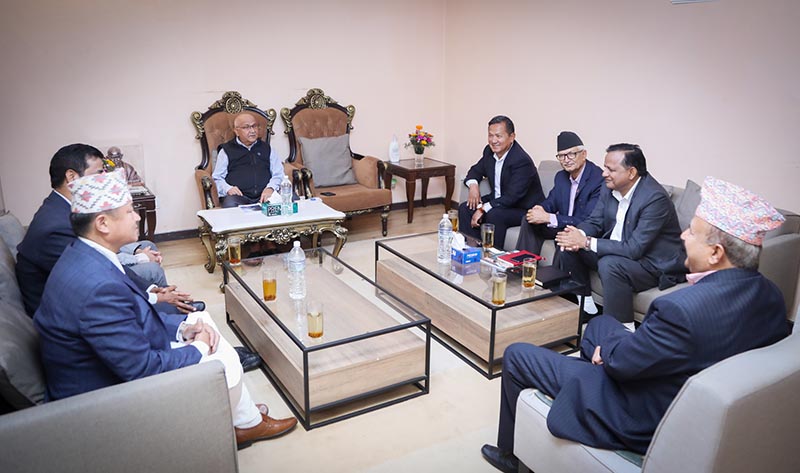Confusion on exercising concurrent powers persists
Kathmandu, April 5
The federal government’s failure to formulate coordinating laws has resulted in duplication of development projects and confusion among three tiers of government on exercising concurrent powers.
Since the federal system is based on the principles of cooperation, co-existence and coordination, the federal government should pass coordinating laws to guide power-sharing procedures and remove any ambiguity among the three tiers of government.
National Association of Rural Municipalities Chairperson Hom Narayan Shrestha lamented local bodies were facing difficulties in exercising concurrent powers guaranteed by the constitution and implementing development projects.
“That’s why the federal government should pass coordinating laws as soon as possible. The laws will guide project implementation, budget allocation and targets,” Shrestha told THT.
He added that a mechanism with representatives from the three tiers of government should be set up to facilitate dialogue on concurrent powers.
“Such a mechanism can be formed only after formulating coordinating laws,” he said.
According to Shrestha, lack of such a mechanism has resulted in duplication of projects and budgetary allocation. For example, all three tiers of the government have allocated funds for the same projects in Gandaki Province.
While Byas Municipality in Tanahun district has allocated Rs 20 million for the Damauli-Chhabdi road project, the Gandaki provincial government and the federal government have allocated Rs 10 million each in the same project. All three tiers of the government called separate tenders, resulting in a dispute to implement the project. To resolve the dispute, the project is likely to be divided into three parts.
Byas Municipality Chair Baikuntha Neupane said the dispute ensued because all three tiers of the government wanted to take credit for the development of the project.
Similar is the situation in Palungtar Municipality of Gorkha district, where also all three tiers of government allocated funds for a road project and the project had to be divided into two parts.
When the issue was brought to the notice of Gandaki Province Chief Minister Prithivi Subba Gurung, he conceded the weakness and claimed that such a situation would not arise again.
According to sources, drafting of laws has been delayed because of lack of consensus among the federal government agencies on who should draft these laws.
The constitution bars the federal government from issuing directives to provinces and local levels, but federal government bureaucrats have been making plans with a unitary mindset.
Article 235 (1) of the constitution mentions that the Federal Parliament shall formulate necessary laws to maintain coordination between the federation, provinces and local levels. The constitution also clearly mentions in Article 232 (1) that the federation, provinces and local levels shall enjoy relations based on the principles of cooperation, coexistence and coordination.
READ ALSO:






